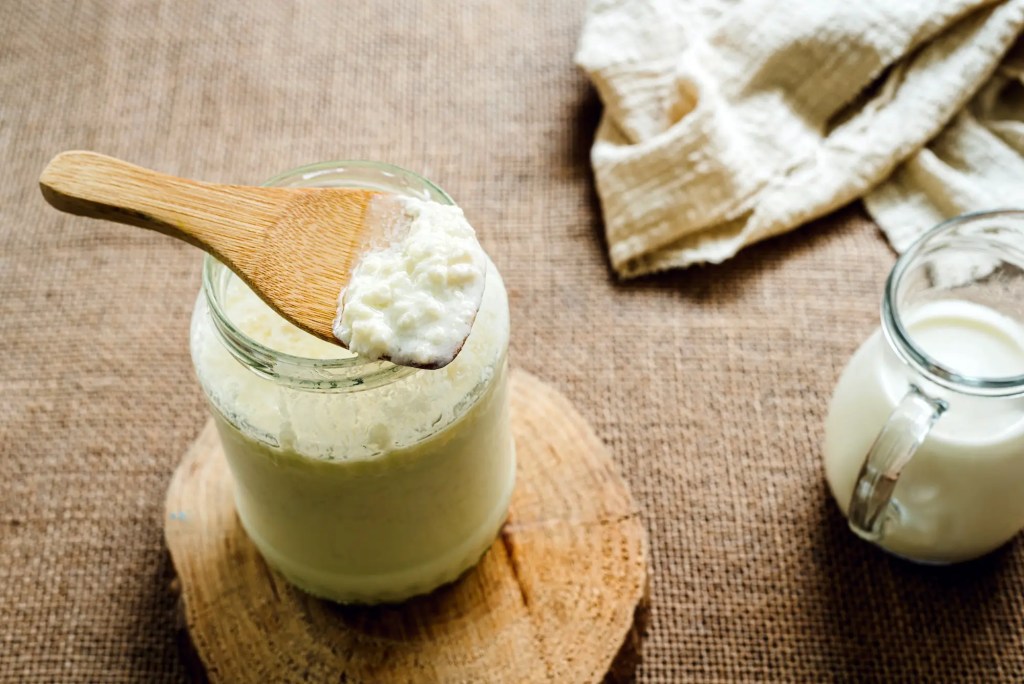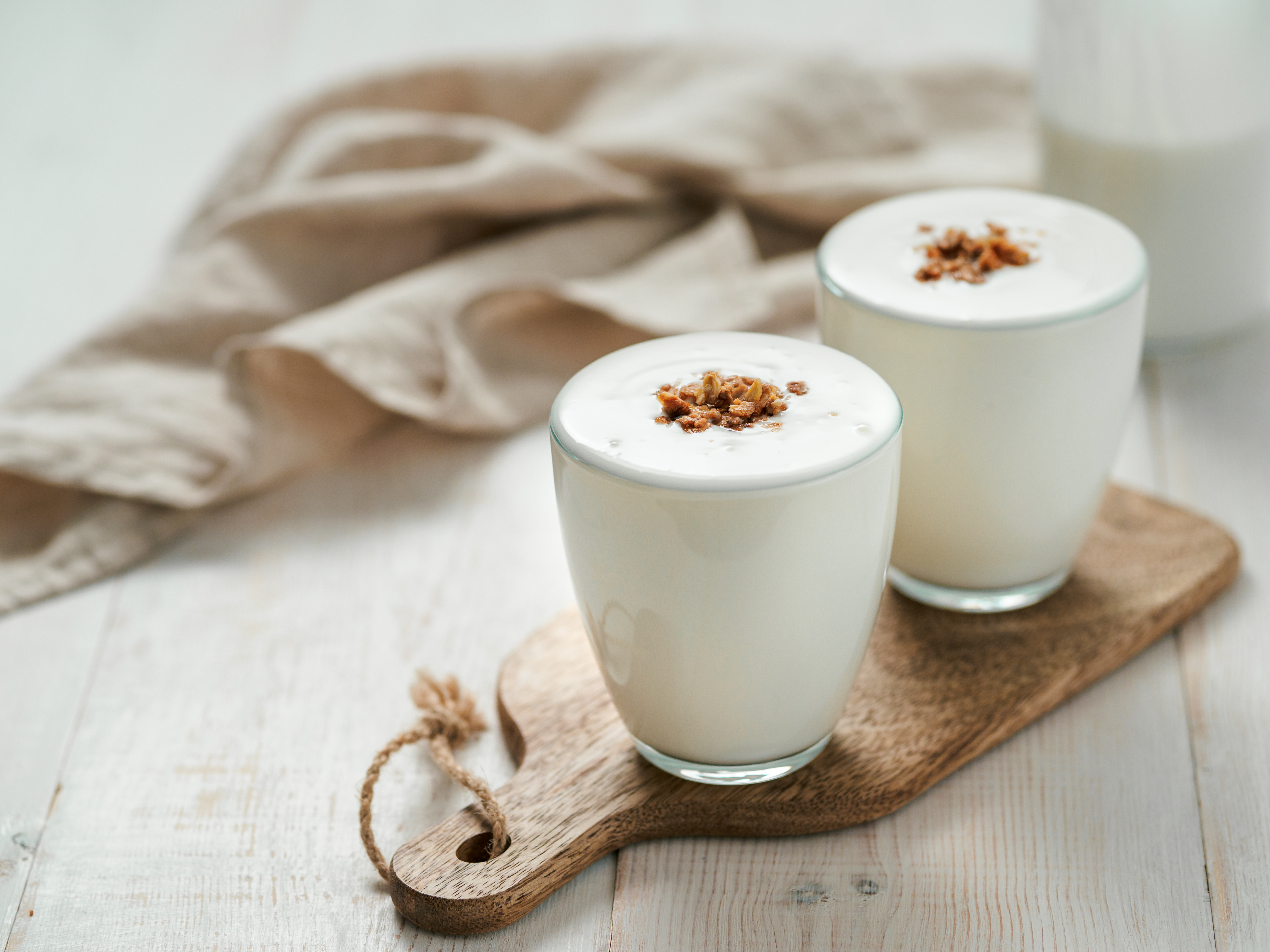Kefir is a fermented milk drink that has been around for centuries and has gained popularity in recent years for its numerous health benefits. But what makes kefir a superfood, and why should you consider incorporating it into your diet?
Kefir: The New Superfood
First of all, kefir is a great source of probiotics. Probiotics are beneficial bacteria that live in our gut and play a crucial role in maintaining a healthy digestive system. Kefir is made by adding kefir grains, which are a combination of lactic acid bacteria and yeast, to milk. These grains ferment the milk, creating a drink that is rich in probiotics. Consuming probiotics can help improve digestion, boost the immune system, and even alleviate symptoms of certain digestive disorders such as irritable bowel syndrome.
In addition to its probiotic content, kefir is also a good source of several essential nutrients. It is high in protein, calcium, and vitamin D, making it a great option for vegetarians or those who are lactose intolerant and looking for alternatives to milk. Kefir is also lower in lactose compared to regular milk, making it easier to digest for those who have difficulty tolerating lactose.
Kefir has also been linked to a variety of other health benefits. Some studies have shown that kefir may help lower cholesterol levels and reduce the risk of heart disease. It has also been suggested that kefir may have anti-inflammatory properties and could potentially help with weight management.
Overall, kefir is a tasty and convenient way to add probiotics and essential nutrients to your diet. Its potential health benefits make it a worthy addition to any superfood list. So next time you’re looking for a healthy, delicious drink, consider giving kefir a try!
The Origins of Kefir
Kefir has a long and fascinating history dating back centuries. According to legend, kefir was discovered by shepherds in the Caucasus Mountains who noticed that their milk had a special, fermented taste after they stored it in animal skin bags. These shepherds discovered that the fermented milk was caused by a combination of bacteria and yeast, which they called “kefir grains.”
Over time, the shepherds learned how to cultivate and preserve these kefir grains, and they began to use them to make kefir. Kefir became a staple in the diets of people in the Caucasus Mountains and surrounding regions, where it was valued for its taste and potential health benefits.
As kefir gained popularity, it spread to other parts of the world. In the late 1800s, kefir made its way to Europe, where it was introduced to the scientific community and studied for its potential health benefits. In the 20th century, kefir became more widely available in the United States and other Western countries.

Today, kefir is enjoyed around the world as a nutritious and delicious fermented drink. It can be made with cow, goat, or plant-based milk, and it is available in a variety of flavours. Whether you prefer to drink it straight up or add it to your favourite recipes, kefir is a tasty and convenient way to incorporate probiotics into your diet.
The Benefits of Kefir
Kefir is a fermented milk drink that has been enjoyed for centuries as a natural source of probiotics and other health benefits. Here are some of the reasons why kefir is worth adding to your diet:
- Supports a healthy gut microbiome. Probiotics are beneficial bacteria that live in the gut and help maintain a healthy balance of microorganisms. Kefir is rich in probiotics, which may help support the growth of good bacteria in the gut and promote a healthy digestive system.
- Immune-boosting properties. Some studies suggest that kefir may have immune-boosting properties due to the presence of certain proteins and vitamins. For example, kefir contains vitamin C and vitamin D, which are important for immune health.
- Anti-inflammatory effects. Kefir contains compounds that may have anti-inflammatory effects on the body. Inflammation is a normal immune response, but chronic inflammation can contribute to the development of certain diseases. Consuming foods with anti-inflammatory properties may help reduce the risk of developing chronic inflammation.
- Bone-strengthening effects. Kefir is a good source of calcium and vitamin K, both of which are important for bone health. Some studies have found that regular consumption of kefir may help improve bone density and reduce the risk of osteoporosis.
In addition to the above benefits, some research suggests that kefir may have other potential health benefits, such as aiding in weight loss, reducing cholesterol levels, and improving blood sugar control. However, more research is needed to fully understand these potential benefits.
Overall, kefir is a delicious and nutritious fermented drink that can be enjoyed as part of a healthy diet. Whether you drink it straight up or add it to your favourite recipes, kefir is a tasty way to incorporate probiotics and other potential health benefits into your diet.
Recipe
Here is a recipe for making homemade kefir:
Ingredients for Homemade Kefir (makes 1 glass):
- 1 cup milk (cow’s milk, goat’s milk, or coconut milk can be used)
- 1 tablespoon kefir grains
Instructions
- In a clean glass jar, combine the milk and kefir grains.
- Cover the jar with a cloth or coffee filter and secure it with a rubber band. Alternatively, cover it with a lid but ensure it is propped open on one side to allow the kefir to ‘breathe’
- Place the jar in a warm location, around 21-23°c, for 24-48 hours.
- Gently stir the kefir. The kefir will be ready when it has thickened and has a slightly sour smell. Don’t worry if it seems too thick, it will thin out after straining.
- Strain the kefir through a fine-mesh sieve or a cheesecloth to separate the grains from the kefir. If you are using kefir powder, you can skip this step.
- Transfer the kefir to a clean jar or bottles and store in the fridge. It can be stored for up to 2 days in the fridge.
Enjoy your homemade kefir as is, or flavour it with fruit, honey, or spices to taste. Kefir is a fermented milk drink that is rich in probiotics, which are beneficial bacteria that can help support a healthy gut microbiome. It is easy to make at home and a delicious way to incorporate probiotics into your diet.


